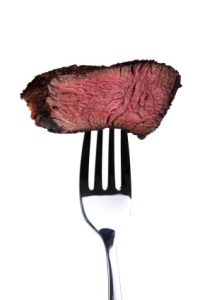 When it comes to the meat and poultry aisle in the grocery store, how much do consumers really know? Words like “mechanically separated” and “all-natural” can be convoluted, so we talked to some of the experts at Coleman Natural Meats to decode some of the most confusing labels that we see on meat packaging today.
When it comes to the meat and poultry aisle in the grocery store, how much do consumers really know? Words like “mechanically separated” and “all-natural” can be convoluted, so we talked to some of the experts at Coleman Natural Meats to decode some of the most confusing labels that we see on meat packaging today.
Certified Organic: While organic food arguably offers some health benefits that conventionally prepared foods do not, an organic designation is not one-size-fits-all. In the US, any item that was made entirely with certified organic ingredients can be labeled “100% organic.” Products that contain 95% organic ingredients can use the word “organic” on their labels. Any products that contain 70% organic ingredients, can be labeled “made with organic ingredients.”
Antibiotic-Free: Most of the livestock in the U.S. is nourished with food laced with antibiotics to promote growth and decrease the likelihood of disease and bacteria developing. Antibiotics also allow animals to survive unsavory – and sometimes unsanitary – conditions that predispose animals to disease. When animals are kept in clean, sterile environments, they don’t need antibiotics and, therefore, can be labeled as such in grocery stores or meat markets.
Free-Range: In the United States the term “free-range” often applies to eggs and poultry and insinuates that the animal in question has been allowed access to the outside world in lieu of being raised in a pen or cage. Though it is typically a more humane way to raise chicken or other forms of poultry, it does not imply that the animal has been grass- or pasture-fed – just that the animal was allowed some fresh air.
Sustainably Farmed: Though marketing sometimes leads consumers to believe otherwise, meat touted as “sustainable” is not necessarily healthier or better for you than conventional meat. What it is better for is the environment – and the animals that are being raised.
Hormone-Free: As with humans, hormones occur naturally in animals. However, it has been estimated that over 90% of conventional cattle are treated with growth hormones that increase the rate of growth in cattle. Hormones reduce flavor quality so opt for hormone-free meat and animal byproducts.
What do you look for most when buying the best meat?
